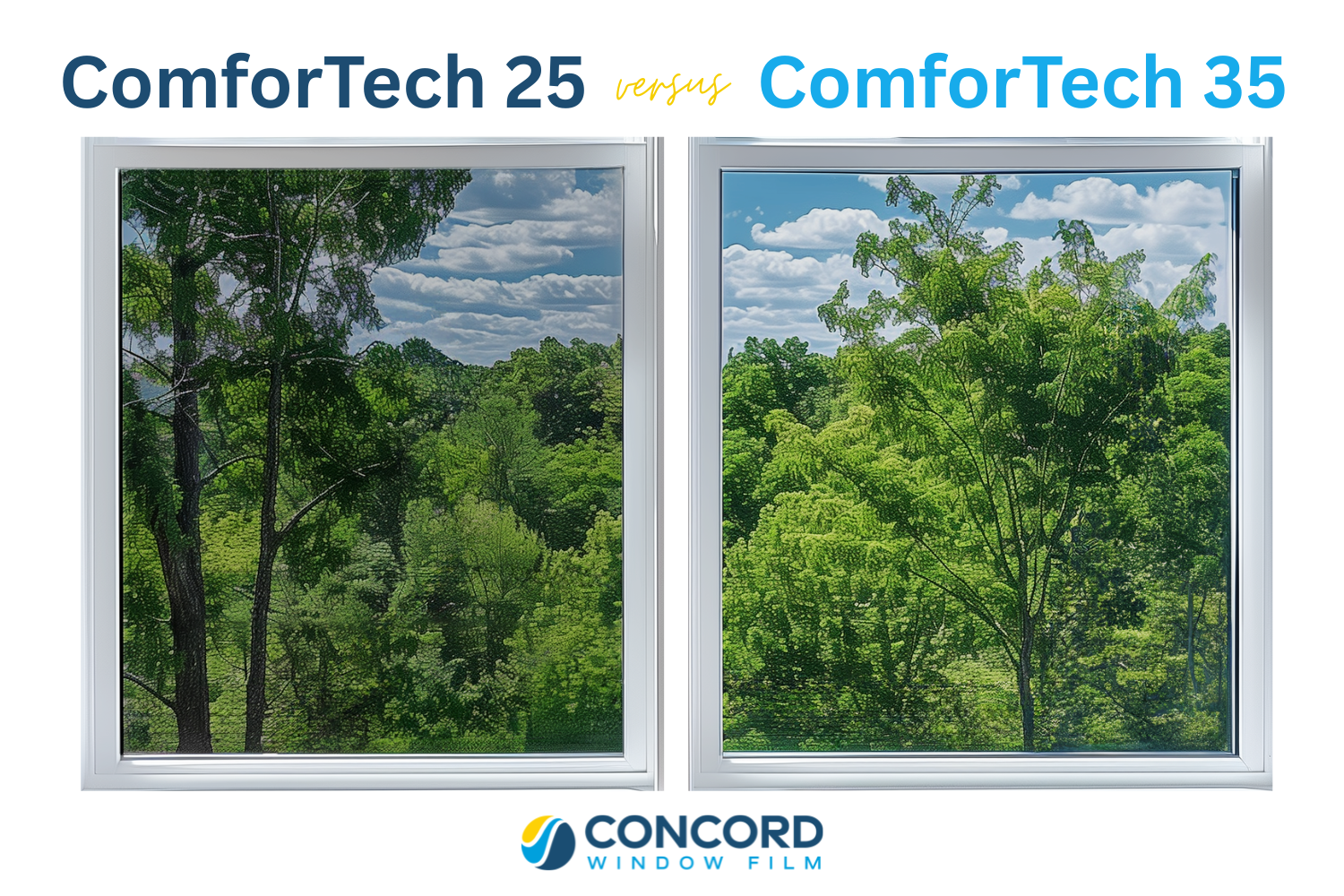
FREE SHIPPING ON PRECUT KIT ORDERS OF $100 OR MORE

If you are here, you’ve been looking at window film for your home. And you might have come across a couple of different terms: window film and window tint and wondered what the difference is between the two. You are not alone!
Although sometimes used interchangeably, there are differences. In this blog post, we’ll dig into window film and window tint and explain how they differ!
You might hear the phrase window tint and think just about cars. Or you may think that window film is just for buildings. Here’s how they differ:
Window film is the blanket term for any type of film that gets installed on windows – whether they be car windows or building windows. It also encompasses all types of window film – not just window film that is tinted or colored.
Window tint refers to a film that has color or tint added to it for solar control or privacy. Tint is often the way the automotive industry talks about window film. “Tinted window” or “window tinting” is something many dealerships or independent installers offer as an aftermarket product to reduce heat build up in your car and protect the interior from fading.
There are many different products under the umbrella of window film:
These films primarily reduce the amount of solar heat transmitted through the windows. People install them to improve energy efficiency, reduce air conditioning costs, protect from UV rays, and minimize fading of interiors.
Learn more about solar control films.

Decorative Window Film
Decorative window film is used primarily as an aesthetic enhancement for windows. These films provide a decorative look (like frosted or etched glass) or can mimic some traditional window pane patterns like Victorian or Craftsman. They can also be opaque to add privacy. These are often used in commercial settings or residential bathrooms.
Safety & Security Window Film
Safety & Security films are thicker films designed to add additional protection to a building’s inhabitants. A window film is classified as a safety film if it meets certain performance standards set by the American National Standards Institute (ANSI). These standards include the ability of the film to hold broken glass together in the event of a break-in or accident, the ability of the film to reduce the risk of injury from flying glass, and the ability of the film to provide privacy and security.
The thickness of the film is the main factor that makes a window film a safety window film. Safety window films are typically thicker than standard window films – typically at least 4 Mil up to 14 Mil or more. This thickness helps to provide more protection against flying glass and other hazards.
Learn more about safety films.
Anti-graffiti Window Film
Anti-graffiti window film protects glass surfaces from graffiti, paint, and other forms of vandalism. It is typically a clear film and is unique because it is applied to the exterior side of the window. Anti=graffiti film is easy to remove and replace and saves on potentially high cleaning or replacement glass costs.
Privacy Window Film
Privacy window comes in two flavors: opaque film that provides day and nighttime privacy, and one-way mirror film that is transparent and provides only day time privacy. Many opaque privacy films are found in the decorative film category. And many solar control films – especially the darker ones – also offer daytime privacy.
Learn more about privacy films.
About Concord Window Film
At Concord Window Film, we provide professional-grade film for homeowners like you to install yourself.
Our main product is a solar control and privacy film called ComforTech™ Ceramic Series. ComforTech™ is a dual-reflective, ceramic film that is 2 Mil thick with a dry adhesive that makes it easy to install yourself.
We also have a decorative film called Matte White Privacy, which resembles frosted glass and adds privacy to a space while simultaneously letting in light.
Finally, we offer a 4 Mil safety film for the home. This film is rated to meet residential building codes in many states that require safety glazing on windows in bathrooms or stairwells.
Explore our site or reach out to us today to learn more about how window film can help improve your home!